The Most Competent Scholars Translated the King James Bible
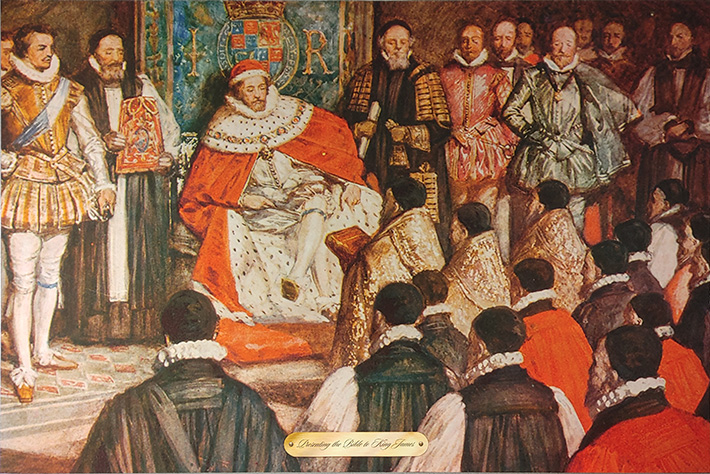
The translators, Church of English in ornate clothing and Puritans in plain clothing (as was their habit) present the completed English Bible to King James of England.
King James had a brilliant solution to bring together two warring factions among his Christian subjects. The Puritans wanted a new, correct Bible. But the Anglican church was quite happy with their Bishops’ Bible.
But James had an idea. The churches of the opposing groups would select their best scholars to work together to agree on a single text. That way neither group could write its own viewpoint into the translation. If it tried, the opposing group would shoot it down. What a brilliant way to force the translators to ignore their personal opinions and to just translate precisely, meaning for meaning, nothing added.
It was a brilliant idea! No group got what it wanted, and everyone was responsible for the final text.
Approximately forty-seven scholars, all respected for their knowledge of Greek, Latin, and Hebrew were selected. They came from the best universities where many held positions of authority. Their qualifications were unparalleled in their day and ours.
The majority were educated at the epicenters of classical and biblical scholarship, Oxford or Cambridge. An education at either of these universities included in-depth studies in Latin, Greek, and Hebrew, writings of other respected biblical scholars, medieval scholastics, and contemporary theologians. Their education alone uniquely qualified each man for the task ahead.
Complete mastery and in-depth knowledge of multiple ancient and archaic languages was crucial. The translators had to work with Hebrew, Aramaic, Greek, Latin, Syriac, Arabic, and Chaldean. Many translators were proficient in these, in addition to demonstrating fluency in multiple modern languages.
Anglican translator Lancelot Andrews was fluent in 15 languages. Anglican John Bois was known for his proficiency in Hebrew, having read the entire Hebrew Scriptures by age five. Puritan John Reynolds entered the university at age 13. Anglican William Bedwell was a distinguished linguist known for his work in Arabic and Oriental languages. Most translators were recognized authorities in Greek, Hebrew, and Latin. Puritan Lawrence Chaderton added his knowledge of numerous rabbinical writings. Their combined knowledge and linguistic expertise were exceptional for comparing various biblical texts and ensuring an accurate translation.
Authority and scholarship were also vital considerations. Each translator was recognized for contributions in linguistics, theology, or ecclesiastical studies. Some from each side had translated entire ancient works into English. Many held professorships at Oxford and Cambridge in disciplines including Divinity, Hebrew, and Greek.
Other translators held ecclesiastical positions of authority and served as bishops, deans, and archbishops in the Church of England. They were intimately acquainted with theology and biblical doctrine. This made them uniquely qualified to ensure accurate transmission of scriptural truths from one language to another.
Much of the team was also known for authoring significant authoritative works. Publications included sermons, theological studies, works on church history, and linguistic studies. Such scholarly works demonstrated their excellence in the fields of biblical studies and translation work.
The translators utilized sound translation methods and instituted a “roundtable” review process. Though English was in a state of flux at the time, the scholars decided to use classical English as the language of choice to translate the Bible. Their combined effort made the final work accurate, consistent, and linguistically elegant. In fact, their decision to use classical English set the standard of the English language for the next 200 years.
King James I commissioned the translation, but God gathered the most qualified scholars. He ensured an accurate, consistent, theologically sound translation of the most important text ever written —His words.
Look at what God did as a result: of all the Bibles in the world, the King James Bible is the one that God used to produce worldwide evangelism, revivals time and time again, and biblical literacy throughout the world.
Despite the millions of dollars spent on new Bibles, the King James Bible is the one read by 55% (according to a recent poll) of the people who actually read their Bibles. And those who regularly read them (according to another poll), also are noted as having clear understanding of basic doctrines. Not so with the other Bibles. God’s hand is on His King James Bible.
This translation not only reflects the meticulous work of some of the greatest scholars of their day but also stands as a testament to God’s promise that He would preserve His words for all time. When you read your King James Bible, you can be confident that you hold God’s holy and preserved, clear and accurately translated words in English.
- See more articles on related topics:
- Bible Versions
- King James Bible
- Bible Translation
Other Articles from November/December 2024:
More on Bible Versions:
Products of Interest:
-

Did the Catholic Church Give Us the Bible?
208 pages
The Bible has two histories. One is of God preserving His words through His people. The other is of the devil using Roman Catholic "scholars" to pervert God’s words and give us corrupt modern Bibles. -
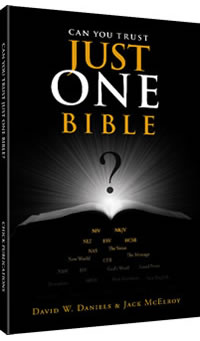
Can You Trust Just One Bible?
160 pages
Answers to the most common anti-KJV accusations. -
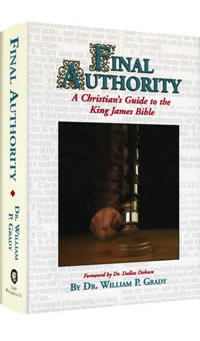
Final Authority
392 pages
Reading much like a novel, this book tells the story behind the King James Bible, and the story of attempts to stop it through intrigue, slander and attempted murder of the King. -

22 pages
Definitions of over 600 less-familiar KJV words. Tuck it in your King James Bible as a handy reference tool. -
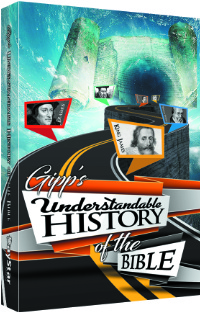
Understandable History of the Bible
557 pages
You'll learn the history of the Bible in this well-documented but easy-to-understand book. -
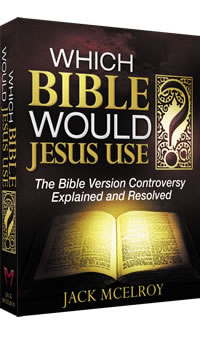
Which Bible Would Jesus Use?
342 pages
Everyone's got an opinion as to which Bible is best. If Jesus walked into your church, which Bible would He quote from? -
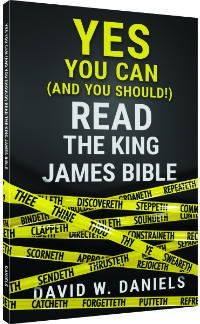
Yes You Can Read the King James Bible
128 pages. This book proves why you can read the King James English with a little effort and that it should be the only Bible you need —and can completely trust.



